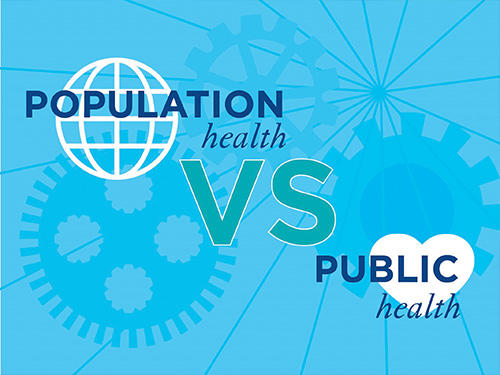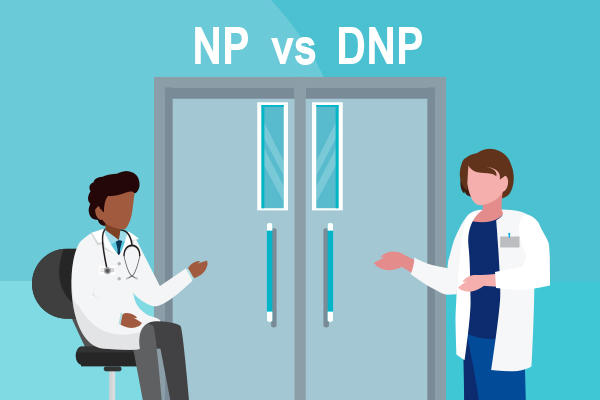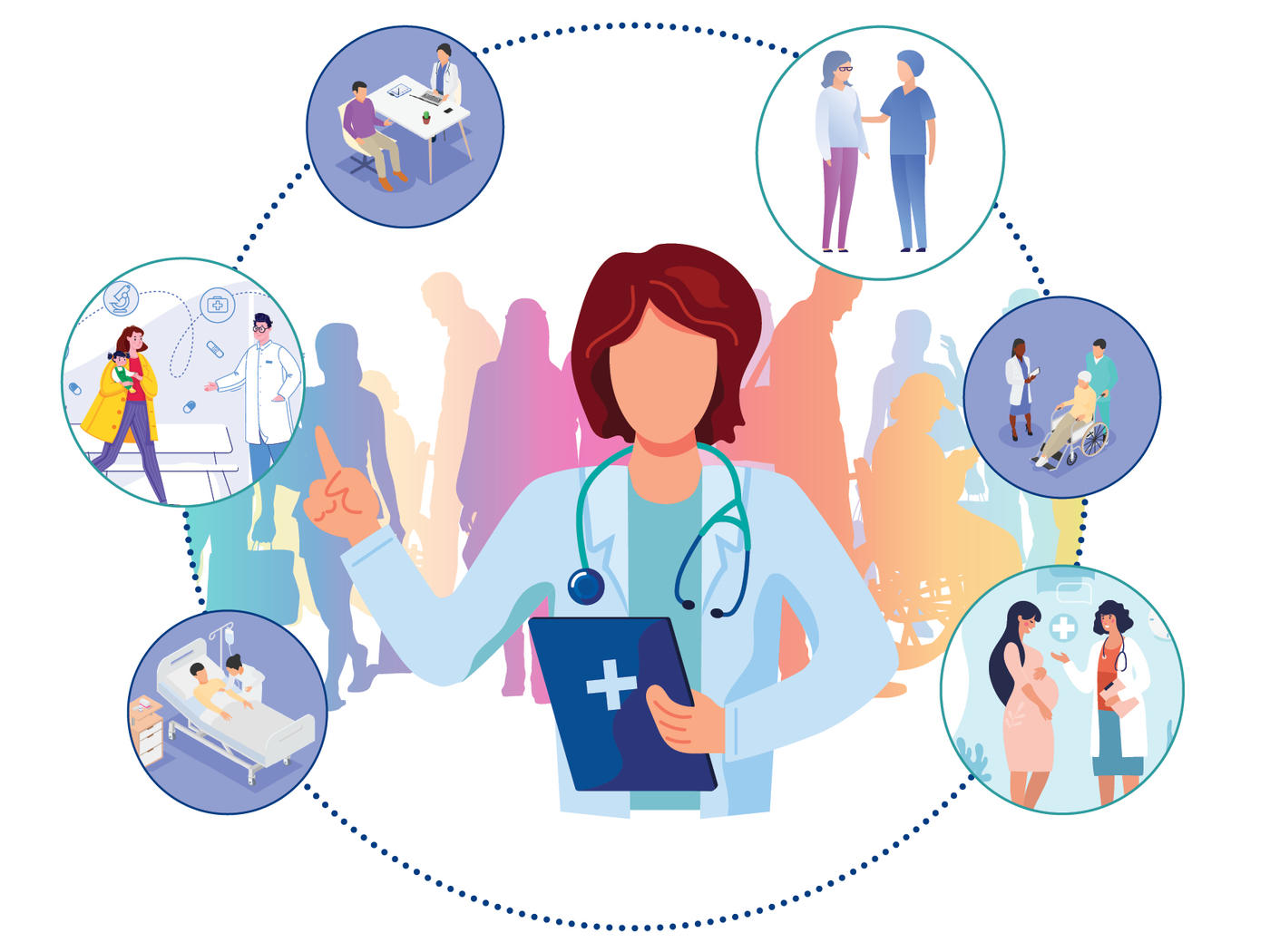Featured
Tags
Share
- Home / Blog / Nursing Today / Population Health vs. Public Health: What’s the Difference Between These Two Healthcare Fields?
Population Health vs. Public Health: What’s the Difference Between These Two Healthcare Fields?

Are you looking to advance your education with a graduate degree that will help you transform the health of people, but are unsure if you want to focus on population health or public health? Although they are interrelated, there are differences between these two healthcare fields to consider before deciding on which path to follow.
What Is Population Health?
Authors David Kindig, MD, PhD, and Greg Stoddart, PhD, define population health as “the health outcomes of a group of individuals, including the distribution of such outcomes within the group.” These groups are often geographic populations such as nations or communities, but they can also consist of ethnic, socioeconomic or any other defined group.
What Is Public Health?
According to the American Public Health Association (APHA), public health promotes and protects the health of people and the communities where they live, learn, work and play. While a medical professional treats patients who are sick or injured, those in public health try to prevent people from illness or injury in the first place and promote wellness by encouraging healthy behaviors.
Which Degree to Pursue?
Selecting which degree journey to take depends on your career goals:
- If you’re a nurse, you may be thinking about earning a Master of Science in Nursing (MSN) degree with a specialty in Population Health. You can focus on applying your nursing expertise toward providing individual population groups with viable solutions that support and promote healthy lifestyles locally and globally to drive quality outcomes.
- If you’re new to healthcare or are an existing healthcare professional, you may be interested in pursuing a Master of Public Health (MPH) degree. You can help lead projects and teams that implement solutions for public health programs and policies to promote healthy living and prevent community health problems such as disease, poverty, health access disparities and violence. Explore the exciting opportunities available through Chamberlain University’s MPH degree program here.
A Closer Look at Chamberlain’s New MSN Population Health Specialty Track
To enhance our ability to meet students where they are in their journey, Chamberlain University recently launched the Population Health specialty track within our existing MSN degree program. We are now accepting applications for the November 2019 session. To delve deeper into the new track, Chamberlain Associate Professors Allison Sabin, DNP, RN, PHNA-BC, and Dana Messerly, DNP, MPH, RN, provided the following highlights:
1. Specialize in population-level health, wellness, health promotion and disease prevention.
Chamberlain’s MSN Population Health Specialty Track focuses on identifying health problems occurring at the population level. It incorporates critical population health skills such as community and population assessment; complex project/program management; disaster management; health services research; health policy analysis; and collaboration with interprofessional and cross-sectoral teams to create, implement and evaluate action plans to optimize health outcomes.
2. Prepare yourself for a wide variety of roles in nursing and practice settings.
This track is designed to prepare future leaders for community and population health nursing with a focus on local, national and international nursing. Additionally, it is designed for nurses who practice in settings where the goal of care is improvement in population health outcomes, and in settings where aggregate outcomes drive quality improvement in the delivery of healthcare.
Population Health nursing practice roles and settings can include but are not limited to education, case management, clinical practice, consultation, community outreach, clinical healthcare systems, public policy, school health, occupational health, acute care, long-term care, ambulatory care, disaster management, research and management/administration.
3. Build upon your knowledge and experience in nursing practice.
The MSN curriculum provides core courses in nursing theory, research and evidence-based practice, leadership, professional role development, health policy and information systems. After completing core courses, you will begin specialty coursework in Population Health—which allows you to build upon your knowledge of the foundations of professional nursing practice.
The track integrates the competencies for population health professionals set forth by the Public Health Foundation, including community engagement, community health assessment, community health improvement planning and action, health equity and cultural awareness, systems thinking, and organizational planning and management.
Depending on where you want to focus your career, either an MSN in Population Health or MPH degree can be a great option for you. If you’re interested in learning more about these degree programs at Chamberlain, request more information here.
For more insights into the field of public health and an MPH degree, check out:
Meet the Doctor Determined to Make a Difference With a Master of Public Health
2 Fast-Growing Public Health Careers for MPH Graduates
Healthy Communities Equals Healthy Individuals
By Agnes Hicks
More from Nursing Today
Request More Information
To receive the Chamberlain University Program Guide, including associated career paths, please select a program of study.







